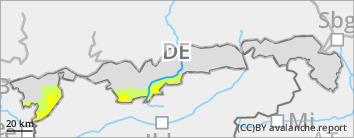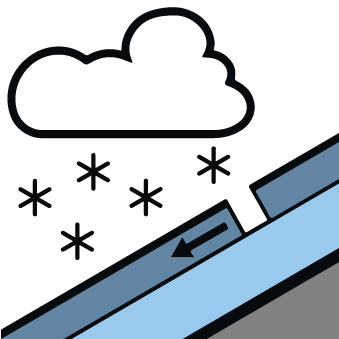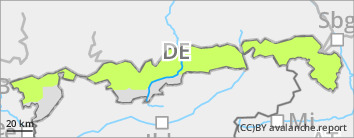
Danger level
 | 1800m |
|  |
|  |

New snow problem at high altitude.
Avalanche danger is moderate above 1800 m; below that altitude it is low. Main problem: new snow. Small loose snow avalanches can trigger naturally in steep rocky terrain in all aspects. The frequency of avalanche prone locations increases with ascending altitude. In a few wind-exposed locations small slab avalanches can be triggered by a single winter sports enthusiast. Possibility of smaller glide-snow avalanches on steep slopes over smooth ground.
Snowpack
Widespread 20cm of new snow, in the Allgäu at highest altitudes up to half a meter of new snow, deposited atop a stable old snowpack. Further snowfall is forecast. At intermediate altitudes the snow is moist and has bonded well with the old snowpack surface. In some places, the new snow amassed in the last few days contains weak interim layers, some of them consisting of graupel. Close to ridgelines at higher altitudes the snow has bonded like slabs in the few areas impacted by wind. The snowpack base is wet widespread.
Tendency
Avalanche danger will not change significantly for the time being.


